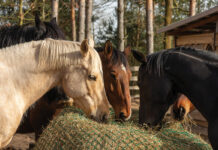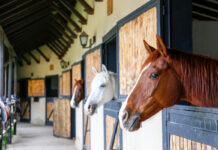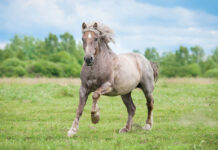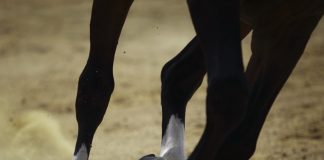

Q: I love giving my horse special treats, so I was wondering what kind of fruits and vegetables are safe to feed your horse?
A: You are not alone in loving to give your horse special treats! And it’s a great question because consider how many foods and ingredients people are able to safely ingest that can be harmful or even fatal to pets like cats and dogs. Fortunately, for as fragile as their digestive tracts are, it doesn’t seem like horses are all that sensitive to things that we normally eat. When “people food” does appear on a list of substances toxic to horses, it generally takes pounds and pounds to have an effect, which is not typically the amount you would feed as a treat.
One group that can be concerning if fed in large amounts are plants that are high in oxalates, such as rhubarb leaves, beet greens, spinach, Swiss chard, and endive. Seeds and pits of fruits like cherries, apricots, peaches, and apples also have a toxic agent, but hardly anyone feeds these whole to their horses and even if they did so, it would take much more than one to have an effect. Technically plants in the nightshade family (like tomato plants and potatoes) are also on the “do not feed to horses” list but there’s little harm in small amounts, and it’s the tomato PLANT that has the potential for toxicity, not the ripe tomato. Cruciferous plants like broccoli, cauliflower, cabbage, kale and others do not technically contain a toxic agent but their tendency to lead to excess gas production in the GI tract worries some people.
Of course, there are plenty of trees, bushes, weeds, and other plants that are toxic to horses (like Japanese yew, a common ornamental shrub). However, among the fruits and vegetables found in your local grocery store, as long as you use common sense and enjoy a fruit or vegetable with your horse as a treat, not a meal (and certainly not a wheelbarrow full), there should be no issues.





